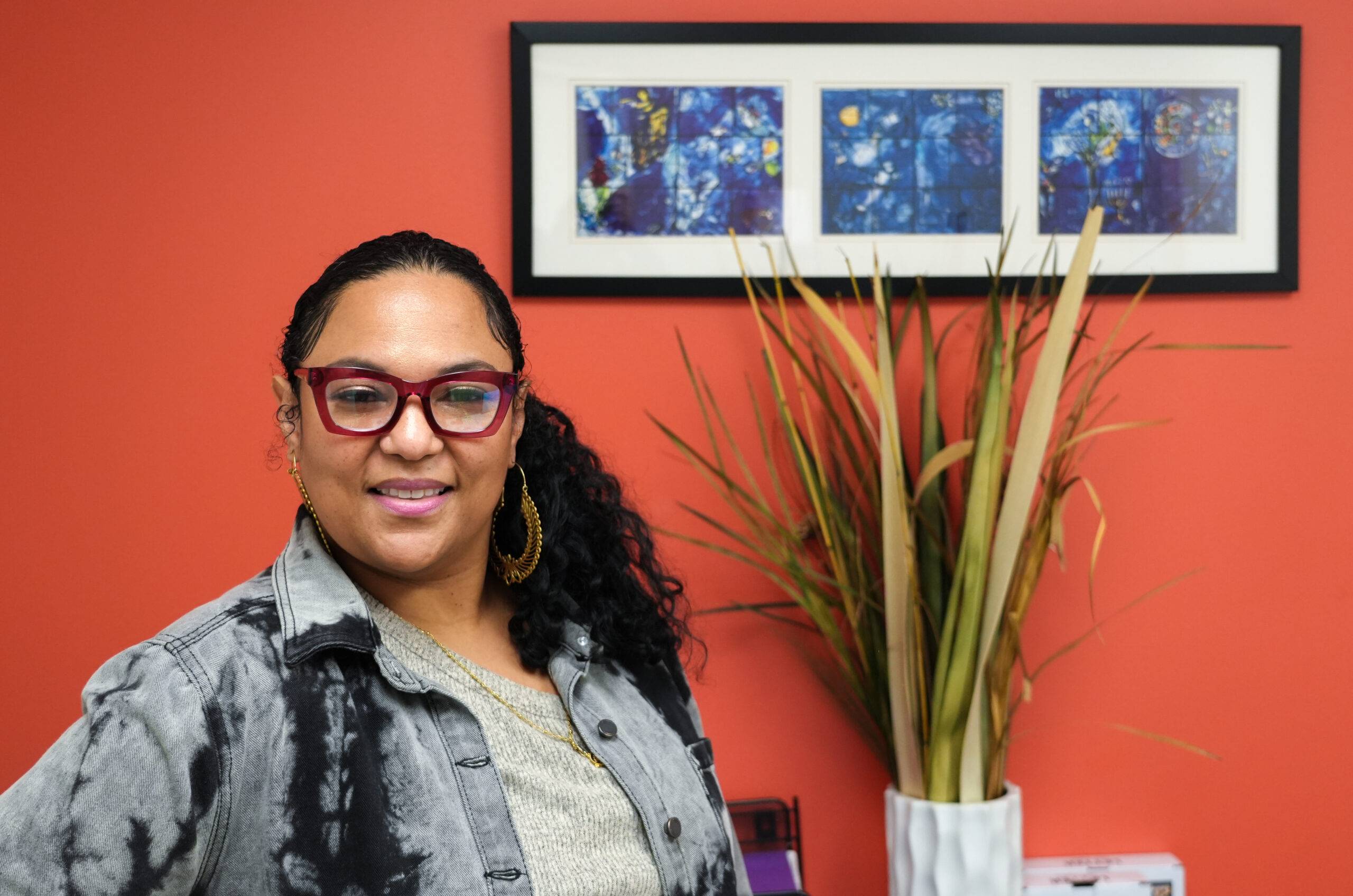
Every year the month of October is marked as Domestic Violence Awareness Month. Throughout this month, campaigns, events, and initiatives are organized to listen to and uplift survivors directly, raise our shared awareness about domestic violence, and to fight against all kinds of abuse.
At the School of the Art Institute, the Title IX office is responsible for handling sexual misconduct, discrimination/harassment complaints, and Equal Employment Opportunities concerns ensuring individuals’ educational and employment decisions are based on their abilities, and/or retaliation for participating in any of those processes.
F Newsmagazine sat down for an interview with Verron Fisher, the Title IX Deputy Director and Investigator at SAIC. We spoke about what domestic violence constitutes, and ways in which bystanders can intervene.
Nehir Uslu: Can you elaborate more on the specifics of the Title IX Office at SAIC?
Verron Fisher: The Title IX office oversees the Sexual Misconduct Under Title IX Policy. We also oversee the policy prohibiting sexual assault, domestic violence, dating violence, and stalking, and the policy prohibiting discrimination, harassment, and retaliation. In addition, my office assists students with accommodations for pregnant and parenting students up to six months after postpartum.
NU: Can you elaborate more on what Domestic Violence comprises? How would you define it?
VF: Domestic Violence, is a pattern of behavior in a relationship that uses or maintains power control over an intimate partner or a person who lives in the same household. The abuse can be physical, sexual, emotional, economic, or psychological actions or threats of actions that influence another person. This includes any behaviors that frighten, intimidate, terrorize, manipulate, hurt, humiliate, blame, injure, or might wound someone. It can happen to anyone of any race, age, sexual orientation, religion, or gender and it can manifest in a range of relationships including couples who are married, living together, or dating. Domestic violence affects people of all socioeconomic backgrounds and education levels.
NU: What are some ways witnesses of violence can take action both in and outside the school? How can we be active bystanders?
VF: There are so many ways students can intervene when necessary, which is also referred to as bystander intervention. There are five approaches that come to my mind when I think of someone intervening. The approaches include ‘Direct’, ‘Delay’, ‘Distract’, ‘Delegate,’ and ‘Document.’
‘Direct’ means stepping in and intervening directly. It is important that the people who are intervening do not getting themselves injured in the process. I only suggest being direct when there is a situation that absolutely requires it.
For ‘Distract,’ as a bystander, there might be an opportunity to distract the person who is demonstrating the abuse. Ways to distract the person would be speaking to them or asking them a question, coming up with an excuse, for example, maybe “Your shoe is untied,” or “You dropped something.”
The next ‘D’ is to ‘Delegate,’ when necessary. A bystander might have the opportunity to intervene, but they also can contact someone who might be better equipped to handle the situation. Such as calling 911 or Campus Security. Choosing to act can be done in a variety of ways. Distraction can be done with assistance from others. If you are a witness to a situation with another person, you can act together as a team.
The next one is ‘Delay.’ Intervening can be difficult to perform if the bystander is not sure whether or not to act. This is why all bystanders should carefully figure out what appears to be the situation. If it is hard to find out what is happening, try asking other bystanders what they think is happening. This can be useful if the bystanders themselves are not sure or if help should be given from someone more qualified. Intervening is important, but so is the person’s safety. Safety is the most important step in any intervention action. Safety of the victim and the bystander should be considered at all times and the intervention should not be performed if you feel someone’s safety could be threatened.
The last ‘D’ stands for ‘Document.’ Try to gather as much information as you possibly can about the parties involved. Try to document what they are wearing, and what they look like, if you are outside, try to figure out the exact location where everything is taking place, and what time. These are important things a bystander can do when intervening.
NU: How can we support the survivors/victims of domestic violence?
VF: For anyone who is supporting a victim/survivor of domestic violence, the first thing to do is to listen to them. Find a time and place that is safe and confidential so that the person can share. Start the conversation by expressing concern. An example of that is “I am worried about your safety,” and allow that person to speak. Most importantly, let them know that you believe what they are telling you. Sometimes victims/survivors may not feel like they will be believed.
The next thing I would recommend is offering support. Let them know that no one deserves to be hurt or abused. Abuse is not the victim’s fault. Assure that what they are feeling is okay and ask how you can best support them. The victim/survivor knows what is best for their situation. It is easy to make suggestions when we are looking at the situation from the outside. It is very important that the victim/survivor’s choices are respected. Do not pressure someone to leave as that might make matters worse for them. There are many reasons people stay in abusive relationships. The most important thing is offering them support and resources, but ultimately know that it is their decision. Let them know that no matter what, you will be there for them with whatever choice that they make.
NU: Can you elaborate more on the help SAIC students can get from Title IX?
VF: Students working with the Title IX office receive many supportive measures, including changes in involved parties’ academic class schedules or other academic adjustments. The Title IX office will work with Residence Life and will help if students need changes regarding their housing. The Title IX office will connect students with an officer within Campus Security if they need help. Lastly, the Title IX office can assist students with mutual No Contact Orders, which is a directive that limits communication between individuals.








An awesome interview and article! Really helpful for learning how to support others going through this and also learning to be more aware of these kind of situations when they happen. Love this!!